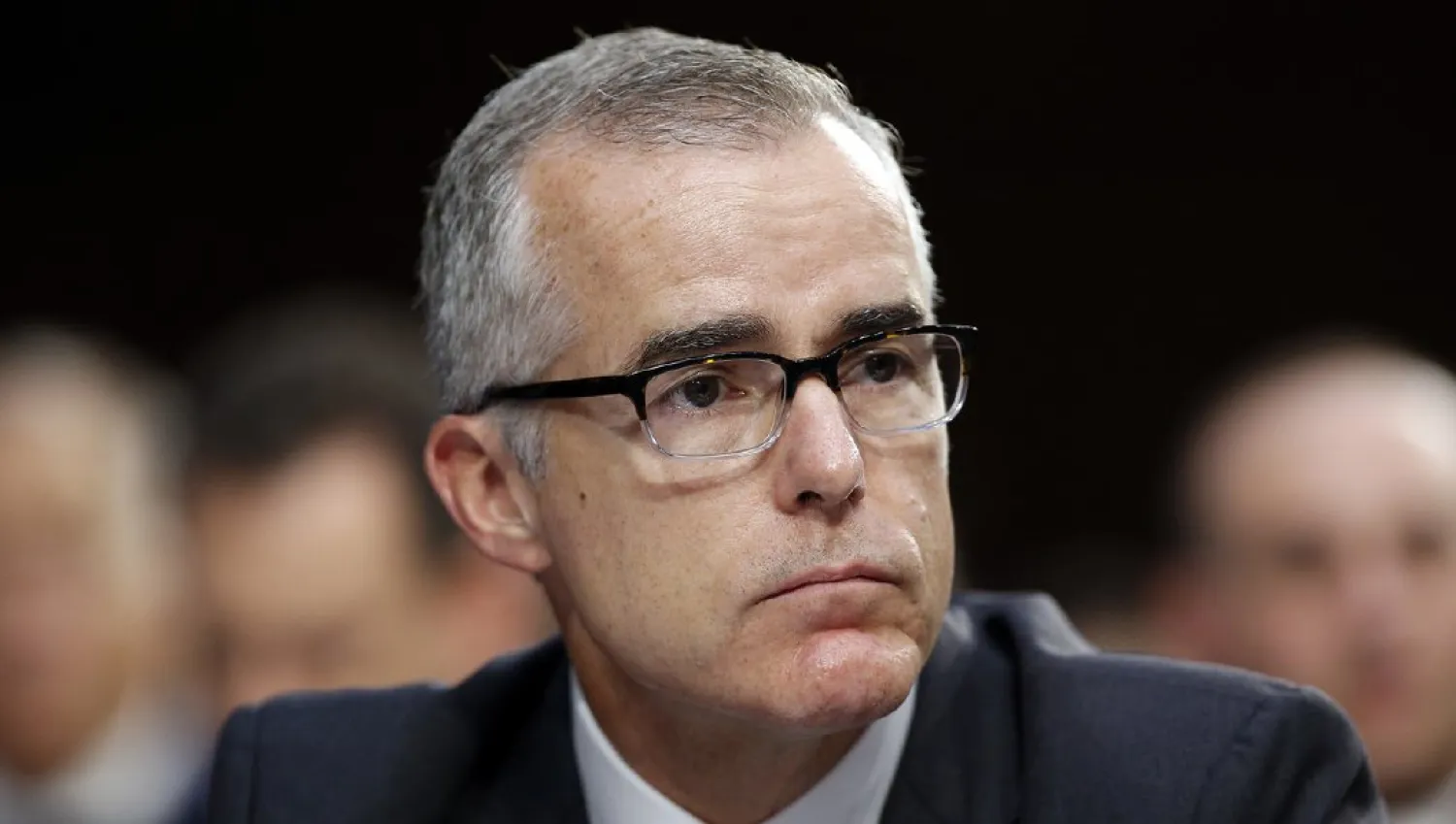In a surprise move, Deputy Director of the FBI Andrew McCabe resigned on Monday, six weeks before his retirement, US officials announced.
McCabe, who served as acting Federal Bureau of Investigation chief for more than two months last year after Trump fired Director James Comey, had been expected to leave his post as the No. 2 FBI official in March.
The FBI said on Monday that David Bowdich, the No. 3 FBI official, would take over as acting deputy director. It did not comment on the circumstances surrounding McCabe’s departure.
White House spokeswoman Sarah Sanders, asked about McCabe’s departure, told reporters: “I can tell you the president wasn’t part of this decision-making process.” Sanders said Trump continued to have “full confidence” in FBI Director Christopher Wray, who was appointed by Trump to replace Comey.
The departure comes as Wray makes changes to his senior leadership team, replacing two other top aides last week. Such changes are not unusual when a new director takes charge, but they are notable amid Trump's public pressure on Wray to get rid of officials who were confidants of Comey.
In a message Monday to FBI employees, Wray said McCabe would be retiring on March 18 and denied that the move stemmed from political pressure.
"I will not be swayed by political or other pressure in my decision-making," Wray wrote.
McCabe has been criticized by President Donald Trump and other Republicans for alleged bias against him and in favor of his 2016 Democratic opponent, Hillary Clinton.
McCabe had intended to stay on the job for about six more weeks when he becomes eligible for retirement, but decided to leave earlier rather than be transferred to a lower-ranking post, according to a former senior FBI official familiar with the matter.
The earlier departure came amid concerns about an upcoming Justice Department inspector general report scrutinizing the actions of McCabe and other top FBI officials during the 2016 presidential campaign, the official said.
During that period, the FBI investigated Trump campaign connections to Russia and Clinton’s use of a private email server while she was US secretary of state. No charges were brought against Clinton.
McCabe became deputy director in 2016 following earlier jobs running the FBI's Washington field office and serving as head of its national security branch. A Duke University-educated lawyer, he joined the FBI in 1996 and worked on organized crime in New York.
Trump’s firing of Comey in May 2017 as the FBI was investigating potential collusion between Trump’s campaign and Russia led to the Justice Department’s naming of Special Counsel Robert Mueller to take over the probe.
Trump said later he dismissed Comey over “this Russia thing,” and the firing has become central to questions about whether Trump has sought to obstruct justice by impeding the Russian probe. Trump has denied collusion between his campaign and Russia.
In a tweet on Monday, Comey said: “Special Agent Andrew McCabe stood tall over the last 8 months, when small people were trying to tear down an institution we all depend on.”
Last week, Trump denied a Washington Post report that he had asked McCabe, shortly after he became acting FBI director, who he voted for in the 2016 election, leaving McCabe concerned about civil servants being interrogated about their political leanings. The Post reported that McCabe told Trump he did not vote in the election.
Trump and some other Republicans have stepped up their criticism of the FBI, prompting Democrats to accuse the president and his allies of trying to undermine Mueller’s investigation.
Senator Mark Warner, the top Democrat on the Senate Intelligence Committee, told PBS: “I’m concerned because there seems to be this pattern that anyone that’s involved in the investigation into Russian interfering and possible collusion with the Trump organization seems to end up losing their job or getting demoted.”
Republicans have criticized McCabe in connection with the Clinton email server probe. They have noted that McCabe’s wife previously ran as a Democrat for a seat in Virginia’s state Senate and received donations from then-Virginia Governor Terry McAuliffe, a close ally of Hillary Clinton and former president Bill Clinton.
The FBI previously said McCabe was not involved in the Clinton investigation until he was promoted to deputy director in January 2016. By that time, his wife’s campaign was over and his involvement was not seen as a conflict.
The former FBI official told Reuters that McCabe did not wish to have those allegations, coupled with the inspector general’s report, harm the FBI at a time when it is under fire from Trump.
Trump has repeatedly taken to Twitter to blast McCabe, asking in December how he could be in charge of the Clinton probe when his wife got donations from “Clinton Puppets.”
A handful of Republican-led congressional committees have launched inquiries into whether the FBI botched the Clinton investigation and showed bias in her favor. In December, McCabe was grilled behind closed doors by lawmakers on some of those panels for hours.









